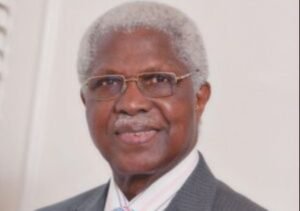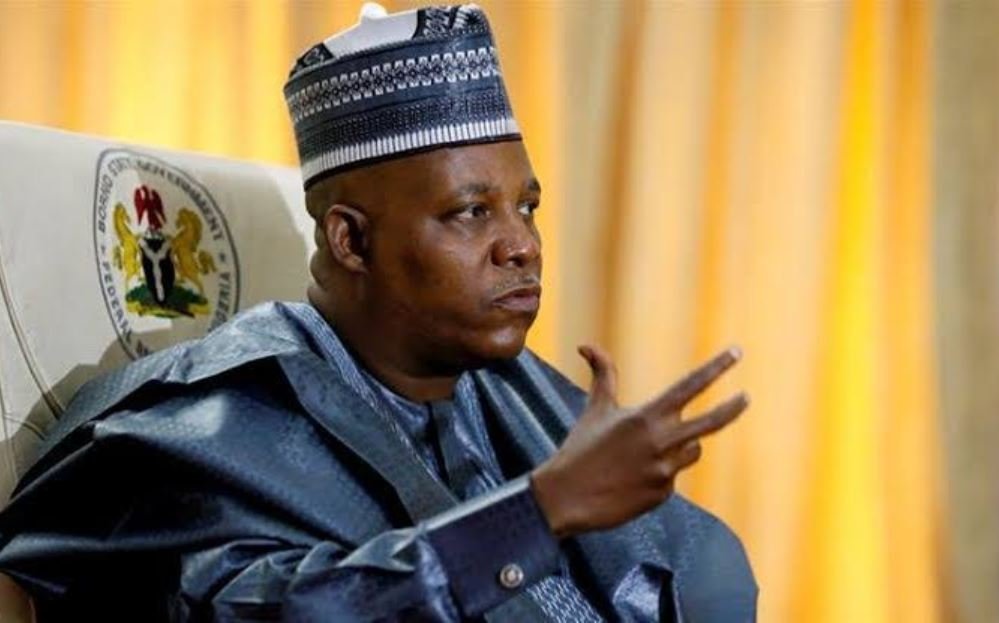The Vice President of Nigeria is the second-highest official in the country’s executive branch, directly elected alongside the President for a four-year term. The role was established on January 16, 1966, with Babafemi Ogundipe as the first holder.
Currently, Kashim Shettima is the 15th Vice President, taking office on May 29, 2023. Vice Presidents must be Nigerian citizens, at least 40 years old, and political party members.
READ ALSO: List Of Presidents Of Nigeria (1963-Present)
List Of Vice Presidents Of Nigeria From 1966 Till Date
Name | Term Start | Term End | Political Party |
|---|---|---|---|
Brigadier Babafemi Ogundipe | January 16, 1966 | July 29, 1966 | Federal Military Government |
Vice Admiral Joseph Edet Akinwale Wey | August 1, 1966 | July 29, 1975 | Federal Military Government |
Lieutenant General Olusegun Obasanjo | July 29, 1975 | February 13, 1976 | Federal Military Government |
Major General Shehu Musa Yar'Adua | February 13, 1976 | September 30, 1979 | Federal Military Government |
Alex Ifeanyichukwu Ekwueme | October 1, 1979 | December 31, 1983 | National Party of Nigeria |
Major General Tunde Idiagbon | December 31, 1983 | August 27, 1985 | Supreme Military Council |
Commodore Ebitu Ukiwe | August 27, 1985 | October 1986 | Armed Forces Ruling Council |
Admiral Augustus Aikhomu | October 1986 | August 26, 1993 | Armed Forces Ruling Council |
Lieutenant General Donaldson Oladipo Diya | November 17, 1993 | December 21, 1997 | Provisional Ruling Council |
Vice Admiral Michael Akhigbe | June 9, 1998 | May 29, 1999 | Provisional Ruling Council |
Atiku Abubakar | May 29, 1999 | May 29, 2007 | People's Democratic Party |
Goodluck Jonathan | May 29, 2007 | May 6, 2010 | People's Democratic Party |
Namadi Sambo | May 6, 2010 | May 29, 2015 | People's Democratic Party |
Yemi Osinbajo | May 29, 2015 | May 29, 2023 | All Progressives Congress |
Kashim Shettima | May 29, 2023 | Present | All Progressives Congress |
Who Was Nigeria’s First Vice President?

Nigeria’s first Vice President was Babafemi Olatunde Ogundipe, born on September 6, 1924, in Ago-Iwoye, Ogun State.
He held this position for a brief period, from January 16, 1966, until July 29, 1966, during a very unstable time in Nigeria’s history.
Ogundipe played an important part during this time of military coups and political challenges. He had his early education in Nigeria before attending the University of London in the United Kingdom.
His military career began when he joined the Royal West African Frontier Force during World War II, serving in Burma from 1942 to 1945.
After the war, Ogundipe continued in the military, becoming a second lieutenant in the Nigerian Army in 1953. By 1964, he had worked his way up to the rank of Brigadier.
In January 1966, after a coup overthrew Nigeria’s first Prime Minister, Sir Abubakar Tafawa Balewa, Ogundipe became Chief of Staff of the Supreme Headquarters.
This role made him the de facto Vice President under Major General Johnson Aguiyi-Ironsi, who was then Nigeria’s Head of State.
However, Ogundipe’s time in office didn’t last long. In July 1966, another coup took place, which led to the assassination of Aguiyi-Ironsi.
Ogundipe was criticized for not taking control during the chaos that followed the coup. After being deposed, Ogundipe left Nigeria for the United Kingdom.
In September 1966, he returned to public service as Nigeria’s High Commissioner to the UK, a role he held until August 1970. During this time, Ogundipe secured military assistance for Nigeria during the Nigerian Civil War.
After his public service, Ogundipe continued to engage in philanthropic efforts. Sadly, he passed away on November 20, 1971, from a heart attack in London.
READ ALSO: List of Senate Presidents Of Nigeria (1960-Present)
Who Was The First Civilian Vice President Of Nigeria?

Alex Ifeanyichukwu Ekwueme was the first civilian Vice President of Nigeria. He was born on October 21, 1932, in Oko, Anambra State.
Ekwueme served as Vice President from October 1, 1979, to December 31, 1983, under President Shehu Shagari. He was a highly educated man who studied architecture at the University of Washington in the United States.
After completing his education, Ekwueme returned to Nigeria and became an important figure in the country’s politics.
Ekwueme co-founded the National Party of Nigeria (NPN), which played a major role during Nigeria’s Second Republic.
His time as Vice President was focused on promoting democratic governance and unity among Nigeria’s different ethnic groups.
Ekwueme was known for his intellectual approach to politics and believed in federalism, which means sharing power fairly among the regions in Nigeria. He wanted all ethnic groups in the country to have a fair voice in government.
However, his time in office ended suddenly when the military, led by Major General Muhammadu Buhari, overthrew the civilian government on December 31, 1983.
After the coup, Ekwueme faced many difficulties, including political exile and legal issues. Alex Ekwueme passed away on November 7, 2017.
He is remembered as a leader who stood for democracy, good governance, and the importance of working together as a nation.
Who Is The Current Vice President Of Nigeria?

Kashim Shettima Mustapha, born on September 2, 1966, in Maiduguri, Borno State is the current Vice President of Nigeria.
Shettima took office as Vice President on May 29, 2023, and he is the 15th person to hold this position. He studied Agricultural Economics at the University of Maiduguri, where he earned his Bachelor’s degree.
He also has a Master’s degree from the University of Ibadan. Shettima was a lecturer at a university before entering politics. Afterward, he moved into banking, managing at different banks, including Zenith Bank.
Shettima’s political career began in 2007 when he was appointed as the Commissioner for Finance in Borno State by Governor Ali Modu Sheriff. Over time, he served in several other ministries, such as Local Government, Education, Agriculture, and Health.
His big political break came in 2011 after the assassination of Modu Fannami Gubio, the gubernatorial candidate for the All Nigeria Peoples Party (ANPP).
Shettima was chosen to replace Gubio as the party’s candidate. He won the election and became the Governor of Borno State.
During his time as Governor from 2011 to 2019, Shettima faced tough challenges, especially due to the Boko Haram insurgency that affected the region.
Although his handling of the security crisis was criticized by some, Shettima also received praise for his efforts to rebuild Borno State. In 2019, Shettima was elected as a senator representing Borno Central in the National Assembly.
In July 2022, Bola Ahmed Tinubu selected Shettima as his running mate for the presidential election under the All Progressives Congress (APC). Many people were surprised by this choice, but it highlighted Shettima’s close political relationship with Tinubu.

